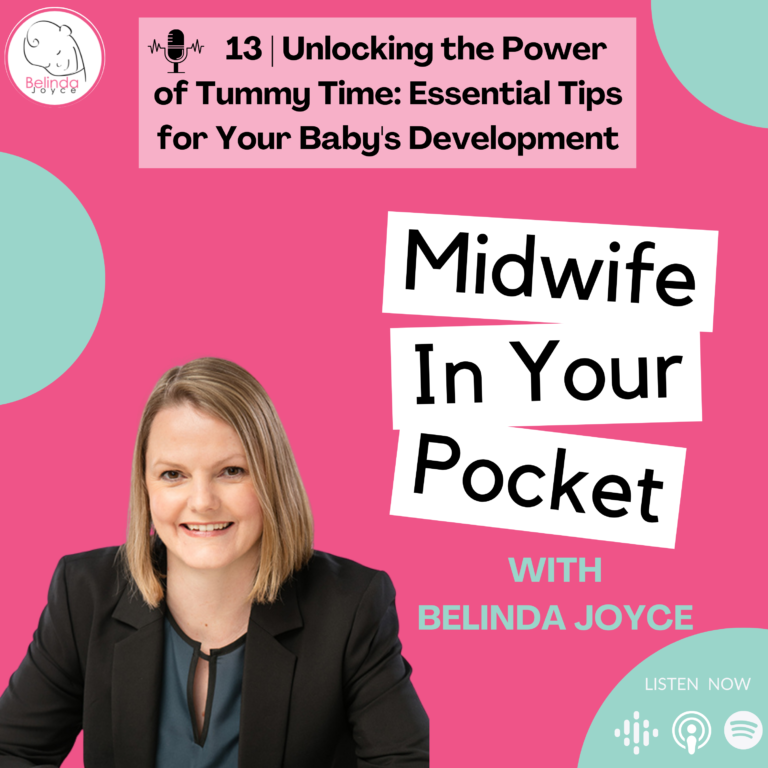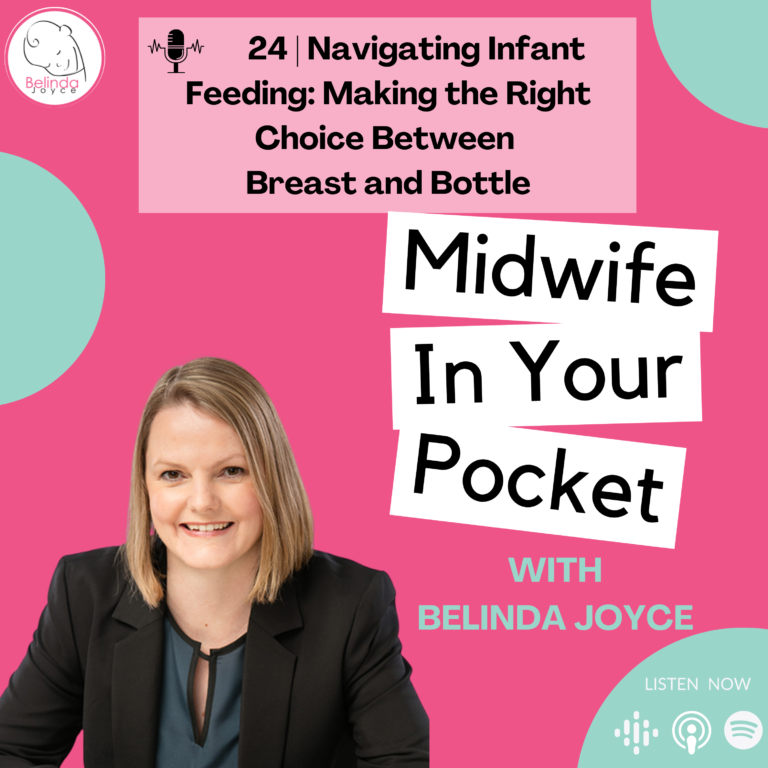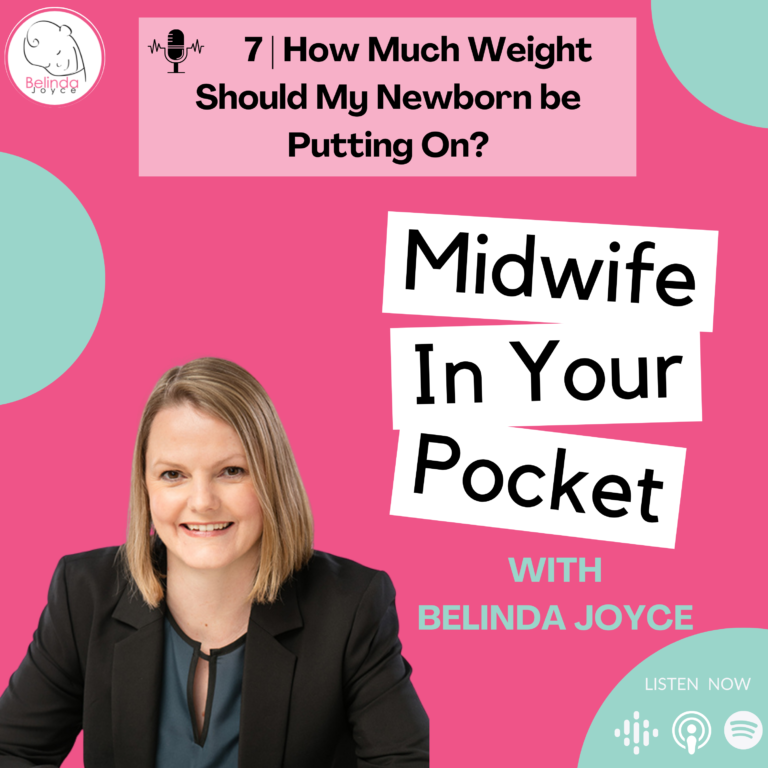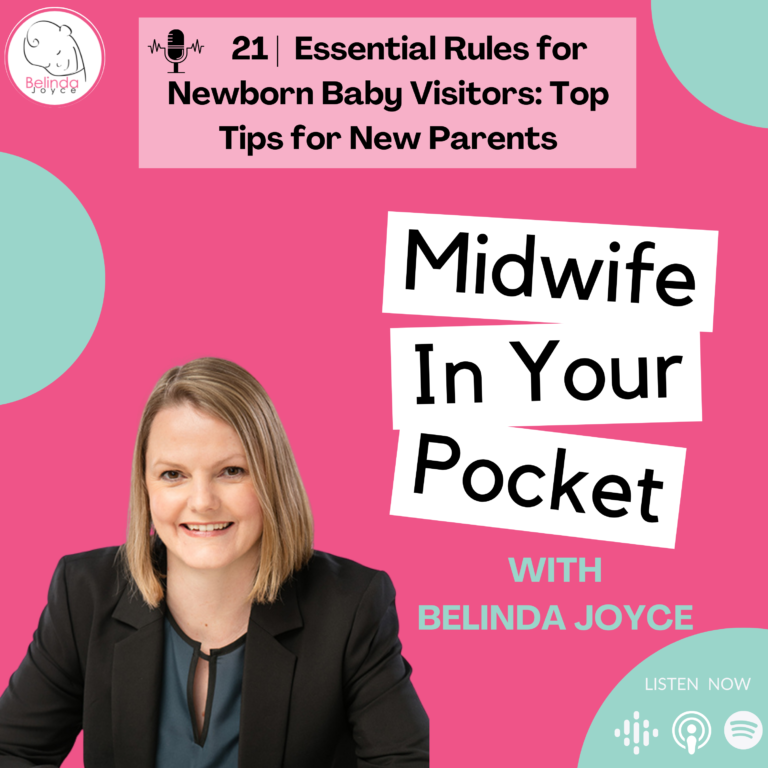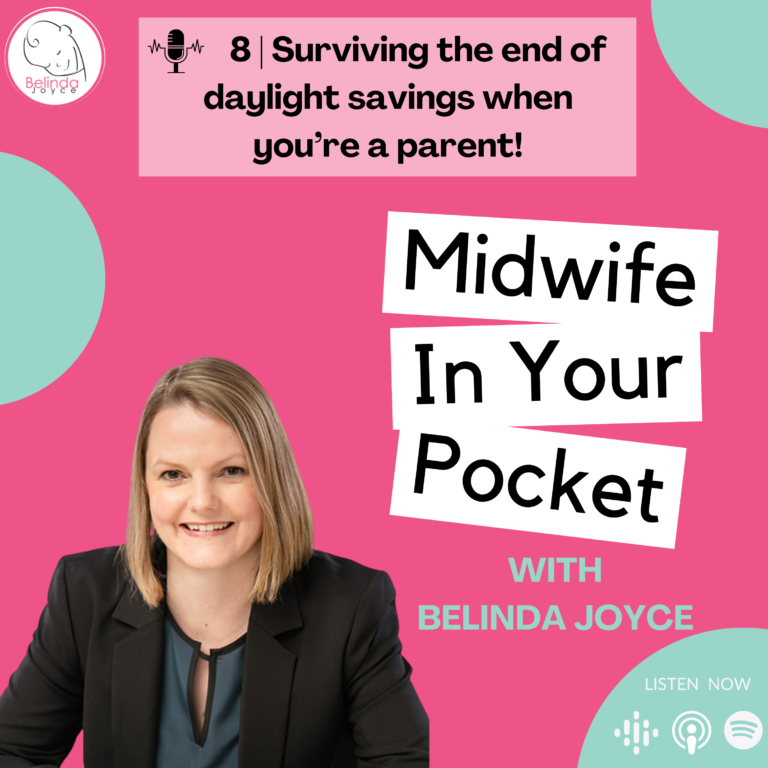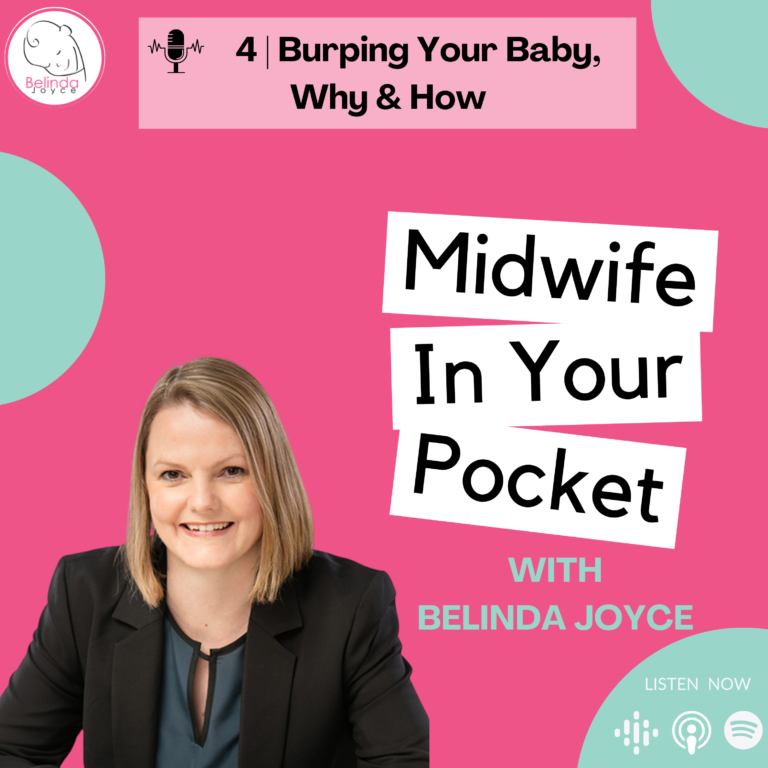Episode 2 | Newborn Crying, is it Normal?
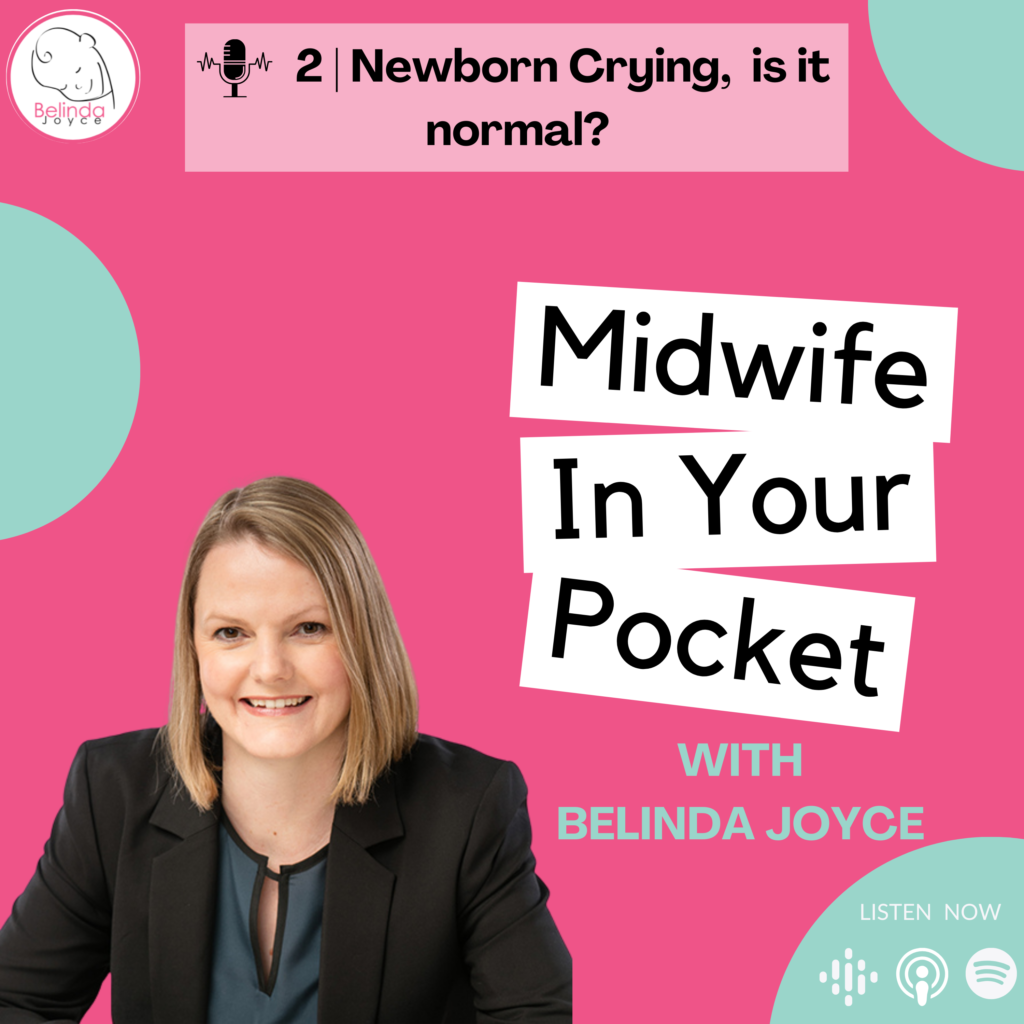
Podcast Show Notes: Episode 2 | Newborn Crying, Is It Normal?
In today’s episode, we’re tackling a topic close to every parent’s heart—newborn crying. It’s important to understand that newborn crying is not only normal but expected. Did you know that healthy infants cry more each day, averaging two to three hours by 6-8 weeks old, often peaking in the evening when parents are tired?
Before becoming a midwife, I received valuable advice from a friend: babies cry, and it doesn’t necessarily mean you’re doing anything wrong. Despite well-meaning advice that isn’t often helpful, you will learn to recognise your baby’s cries, early weeks often involve a lot of inconsolable crying, and soothing strategies may vary day to day.
Experts haven’t pinpointed why babies cry so much, but it’s considered a normal part of development, reassuring parents that their baby is following a typical pattern. Understanding this can make coping easier for parents.
DISCOVER HOW TO SURVIVE & ENJOY YOUR BABY!
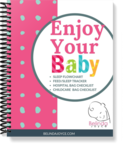 The pack is full of checklists and printables to help you improve sleep challenges with our flowchart, decide what to take to hospital, what equipment is essential, what to put in your nappy bag and so much more
The pack is full of checklists and printables to help you improve sleep challenges with our flowchart, decide what to take to hospital, what equipment is essential, what to put in your nappy bag and so much more
Most parents find greater enjoyment in parenting as they learn to decipher their baby’s cries, which become more distinct around three months of age. If you’re concerned, it’s always wise to consult your doctor for a thorough check-up to rule out any medical issues.
Possible reasons for crying:
- Hunger
Offer another feed
2. Wants to suck
If fed recently offer a dummy or babies own fingers
3. Needs comfort and closeness from parent
Pick up baby and cuddle, try patting, rocking, shushing noises
4. Uncomfortable
Too hot or cold, change position, clothing
5. Tired or overtired
Try to get to sleep, may need rocking/feeding to assist
6. Dirty nappy or nappy rash
Check nappy, change and apply a nappy barrier cream
7. Wind or digestive pain or discomfort in the tummy
Try gentle tummy massage, cycle legs, cuddle as your warm body acts as a heat pack to baby’s tummy
8. Needs to burp
Lift into upright position over shoulder or sitting up on your lap, gently pat and rub back.
9. Overstimulated by visitors, TV, loud noises
Reduce stimulation, dim lighting, quiet spaces, TV off.
10. Teething
Gently rub gums, check for inflamed area.
11. Illness, fever or feeling miserable
See GP or Emergency Department if serious.
One effective strategy for overwhelmed parents is to take a “time out” when feeling frustrated. This not only benefits you but also ensures your baby’s safety. It’s essential to recognize when you need a break and step away briefly.
Place your baby in a safe environment like their cot and take deep breaths. Remember, this isn’t neglectful; it’s about ensuring you’re in the right mindset to care for your baby. Although your baby may still cry when you return, you’ll be better equipped to handle it. It’s crucial to seek help when needed and remember that struggling as a new parent is normal and not your fault.
Head to my blog post for more information, How to soothe your crying baby.
Connect With Me:
Web: www.BelindaJoyce.com
Facebook: @BelindaJoyceMidwife
Instagram: @belinda_joyce_midwife
TikTok: @belinda_joyce_midwife
Download Belinda’s FREE Baby Bundle:
- Checklists for baby equipment, hospital bag, nappy bag, travel & childcare bag
- Newborn Sleep Flowchart-what to do next
- Baby Feed & Sleep Tracker
LOVE THE MIDWIFE IN YOUR POCKET PODCAST?
Hey, mama! Podcast reviews are super important on iTunes and the more reviews we receive the more likely iTunes will reward us and help us reach more Mums just like you who are looking for some support and community through this journey of motherhood. Review me on iTunes!
If you prefer to listen on Spotify, go ahead and rate the podcast, this helps too!
If you’ve loved this podcast, never miss another one! All you have to do is SUBSCRIBE to the Midwife In Your Pocket Podcast on your favourite podcast platform.
Music: https://www.purple-planet.com

